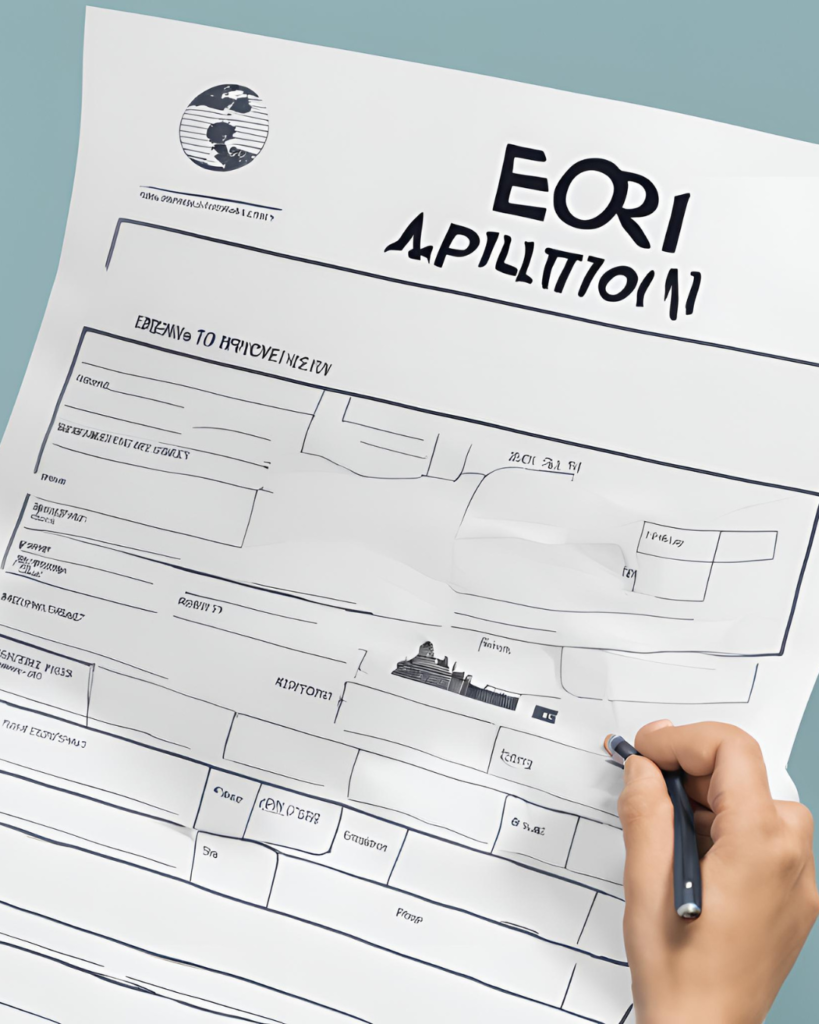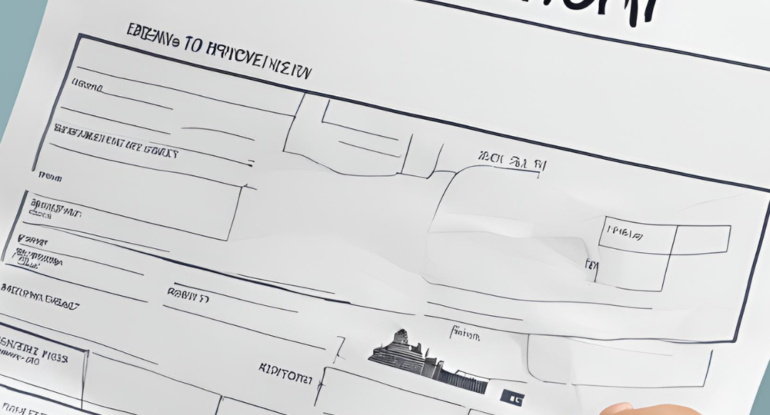EORI Registration Process: What Non-EU Businesses Need to Know for ICS2 ENS Compliance
Navigating Entry Summary Declaration Requirements with the Proper Economic Operator Registration
For businesses operating outside the European Union, complying with the EU’s Import Control System 2 (ICS2) and its Entry Summary Declaration (ENS) requirements presents unique challenges. Chief among these is obtaining and managing Economic Operator Registration and Identification (EORI) numbers – a critical first step in the compliance process. This comprehensive guide explains everything non-EU businesses need to know about EORI registration for ICS2 ENS compliance, helping you navigate this complex regulatory landscape with confidence.
What Is an EORI Number and Why Is It Essential for ENS Filing?
EORI Number Explained in 1 minute
An Economic Operator Registration and Identification (EORI) number is a unique identifier assigned to businesses that engage in customs activities within the European Union. For non-EU businesses involved in shipping goods to or through EU territories, this alphanumeric code serves as your digital identity in all customs transactions with EU authorities.
Under the ICS2 framework, EORI numbers have become even more critical, as they are mandatory for [ENS filings](/service/eu-ics2/). Without a valid EORI number, your Entry Summary Declarations will be rejected, potentially leading to shipment delays, penalties, or even cargo holds at EU borders.
Which Non-EU Businesses Must Obtain EORI Numbers?
The expanding scope of ICS2 means more international businesses than ever before need EORI numbers. You likely need an EORI number if you are:
– A non-EU freight forwarder issuing House Bills of Lading for shipments to the EU
– An NVOCC (Non-Vessel Operating Common Carrier) handling consolidated shipments to EU destinations
– A non-EU exporter directly contracting with carriers for EU-bound shipments
– A non-EU business whose goods transit through EU territory, even if the final destination is non-EU
One common misconception is that only EU-based entities need EORI numbers. In reality, any business responsible for submitting ENS filings must obtain this identifier, regardless of where they are headquartered. Our [ENS compliance service](/service/eu-ics2/) can help determine whether your specific business activities require EORI registration.
The Step-by-Step EORI Registration Process for Non-EU Companies

For businesses outside the European Union, the EORI registration process involves several key steps:
# 1. Determine the Appropriate EU Member State
Non-EU businesses must obtain their EORI number from an EU member state where they conduct customs operations. If you regularly ship to multiple EU countries, you’ll need to select one primary member state for registration. Factors to consider include:
– Volume of shipments to specific EU countries
– Location of your EU branches or subsidiaries (if any)
– Existing business relationships with customs brokers in specific EU countries
Our EORI registration specialists can help you determine the most advantageous member state for your registration based on your specific business operations.
# 2. Gather Required Documentation
While requirements vary slightly by country, most EORI applications require:
– Company registration documents from your home country (with certified translations if not in an EU language)
– Proof of business activity related to EU customs operations
– Tax identification or equivalent from your home country
– Letter of authorization if a third party is submitting the application on your behalf
– Company address and contact information for official communications
# 3. Submit Your Application
There are two main pathways for submission:
– Direct application: Submit directly to the customs authority of your chosen EU member state
– Service provider assistance: Work with a customs broker or compliance service that specializes in EORI registration
For most non-EU businesses, working with a specialized service provider offers significant advantages, including guidance on documentation requirements, translation services, and follow-up with customs authorities. Our EORI registration servicehandles the entire process on your behalf, minimizing administrative burden and potential delays.
# 4. Processing Time and Follow-up
Typical processing times range from a few days to several weeks, depending on the member state and application completeness. Some countries offer expedited processing for urgent situations.
Once issued, your EORI number is generally valid indefinitely, though some member states may require periodic validation or updates. It’s essential to maintain accurate records of your EORI number and include it in all relevant customs documentation.
One EORI or Many? Managing Multiple Business Entities
For multinational companies with various subsidiaries or branches involved in EU trade, EORI management can become complex. Key considerations include:
– Single legal entity: Generally requires only one EORI number, regardless of how many locations it operates
– Multiple legal entities: Each separate legal entity typically needs its own EORI number
– Branch offices: Usually covered by the parent company’s EORI, though practices may vary by member state
Our compliance specialists can help multinational organizations develop an optimal EORI strategy that balances compliance requirements with operational efficiency.
Using Your EORI Number for ENS Filings
Once obtained, your EORI number must be included in all Entry Summary Declarations submitted to EU customs authorities. Specifically, it must appear in:
- The declarant field: Identifying who is legally responsible for the filing
- The carrier field: If you’re acting as the carrier
- The consignor/consignee fields: When applicable to your role in the transaction
Incorrect or missing EORI numbers are among the most common reasons for ENS rejection. Our [ENS filing software](/service/eu-ics2/) includes validation features that verify EORI formatting and ensure your number is correctly placed in all required fields.
Special Considerations for Different Business Models
# Freight Forwarders and NVOCCs
As a non-EU freight forwarder or NVOCC, you face unique challenges when filing House Bill of Lading (HBL) level ENS declarations:
– You must obtain your own EORI number for ENS filing purposes
– You may need to collect and verify EORI numbers from other parties in the supply chain
– You must coordinate with carriers to ensure all filing responsibilities are clearly assigned
Our comprehensive ENS solution provides specialized support for freight forwarders and NVOCCs, including coordination tools that streamline communication with carriers and other supply chain partners.
# Direct Exporters
Non-EU manufacturers or exporters shipping directly to EU customers must:
– Determine whether they or their carrier will handle ENS filings
– Obtain an EORI number if they’ll be responsible for the filings
– Ensure their EU customers have valid EORI numbers for customs clearance purposes
Our compliance team can help direct exporters understand their specific obligations and implement efficient processes for managing EORI information.
Common EORI Registration Challenges and Solutions
# Challenge 1: Language Barriers
Many customs websites and forms are only available in the local language of the EU member state, creating significant hurdles for non-EU applicants.
Solution: Work with a [multilingual compliance service](/service/eu-ics2/) that can navigate these language barriers and ensure accurate translations of all required documentation.
# Challenge 2: Varying Requirements Across Member States
Each EU member state has slightly different documentation requirements and processing procedures for EORI registration.
Solution: Partner with specialists who understand the nuances of each country’s requirements and can guide you to the most efficient registration pathway based on your specific circumstances.
Planning for Successful ICS2 Implementation
With your EORI registration in place, you’ll be ready to tackle the broader requirements of ICS2 ENS filing. We recommend developing a comprehensive implementation strategy that includes:
- Staff training on EORI usage and ENS filing requirements
- System integration to ensure your EORI number flows correctly into ENS submissions
- Process documentation for collecting and validating EORI numbers from other supply chain participants
- Compliance monitoring to track successful filings and address any issues promptly
Our end-to-end ENS compliance solutionsupports each of these elements, providing the tools and expertise you need for successful ICS2 implementation.
Conclusion: Turning Compliance into Competitive Advantage
While obtaining and managing EORI numbers for ICS2 ENS compliance may seem daunting, forward-thinking businesses are using this regulatory requirement as an opportunity to strengthen their EU trade operations. With proper EORI registration and effective ENS filing processes, non-EU businesses can achieve:
– Faster customs clearance with fewer delays
– Reduced risk of penalties and cargo holds
– Enhanced visibility into EU customs processes
– Improved service offerings for customers shipping to or through the EU
By partnering with our specialized compliance team, you can transform ICS2 requirements from a potential obstacle into a strategic advantage that differentiates your business in the competitive global logistics marketplace.
[Request a demo](/request-a-demo/) today to see how our comprehensive ENS compliance solution can streamline your EORI registration and ENS filing processes, ensuring smooth operations for your EU-bound shipments.



